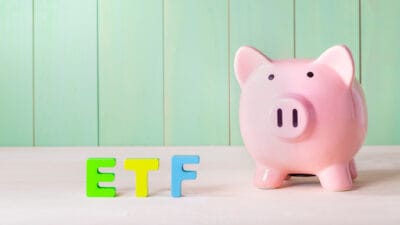With approximately $7.9 billion in assets under management, the iShares S&P 500 ETF (ASX: IVV) is arguably one of the most popular exchange-traded funds (ETFs) on the ASX. It's certainly one of the most popular international index funds that track shares outside the ASX.
One of the perks of an ASX-based index fund, though, is the dividend income potential it can provide. Even if an ASX-based ETF isn't geared to provide high levels of dividend payments specifically, most ASX shares fork out relatively high levels of income, not to mention those valuable franking credits.
As such, even investors who opt for a vanilla ASX index fund like the Vanguard Australian Shares Index ETF (ASX: VAS) can expect to receive an annual dividend yield of between 3-5%. That would also come with some franking credits attached too.
But in stark contrast, US shares are famous for their lack of dividends. Many of the largest companies in the US markets don't even pay a dividend. That includes the likes of Amazon, Alphabet and Berkshire Hathaway.
Indeed, Facebook-owner Meta Platforms made waves earlier this year when it declared its first-ever dividend. Yep, despite its near-US$1.2 trillion market capitalisation, Meta's maiden dividend came in 2024.
So what kind of divided income can one expect from the iShares S&P 500 ETF?
Does the IVV ETF pay a decent ASX dividend?
Well, this ETF does pay its investors dividend distributions. In fact, those investors enjoy quarterly payments every three months from their IVV units – an unusual thing on the ASX.
Over the past 12 months, the iShares S&P 500 ETF has doled out a total of approximately 66 cents per unit.
That's a little more than what investors bagged over the preceding 12 months.
At the current ASX IVV unit price of $53.73 (at the time of writing), these distributions give the fund a trailing dividend yield of… 1.23%. Given this ETF holds no ASX shares, its dividend distributions do not come with franking credits attached.
So yes, the IVV ETF does pay an ASX dividend. It just might not be on the scale that most ASX investors would be accustomed to.
Saying that, ASX investors who have held this ETF for a long time arguably don't have many reasons to complain. What this ETF lacks in dividend firepower, it has certainly made up for when it comes to recent capital growth.
As of 30 April, IVV units have returned an average of 14.17% (growth plus dividends) per annum over the past three years. Over the past five years, investors have enjoyed a 14.69% average annual return, which stretches to 16.24% over the past ten years.








